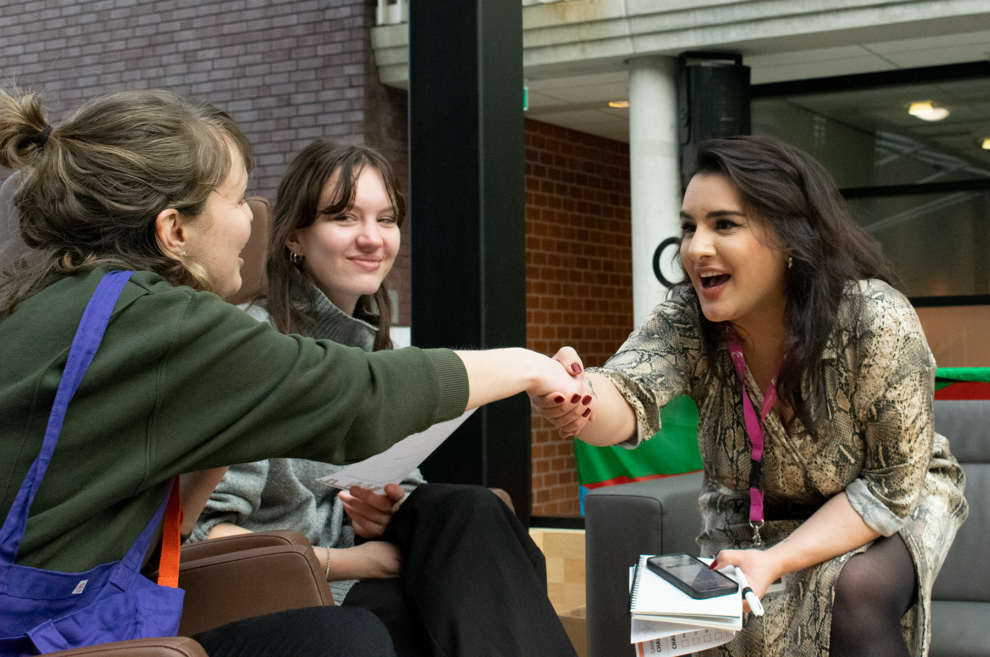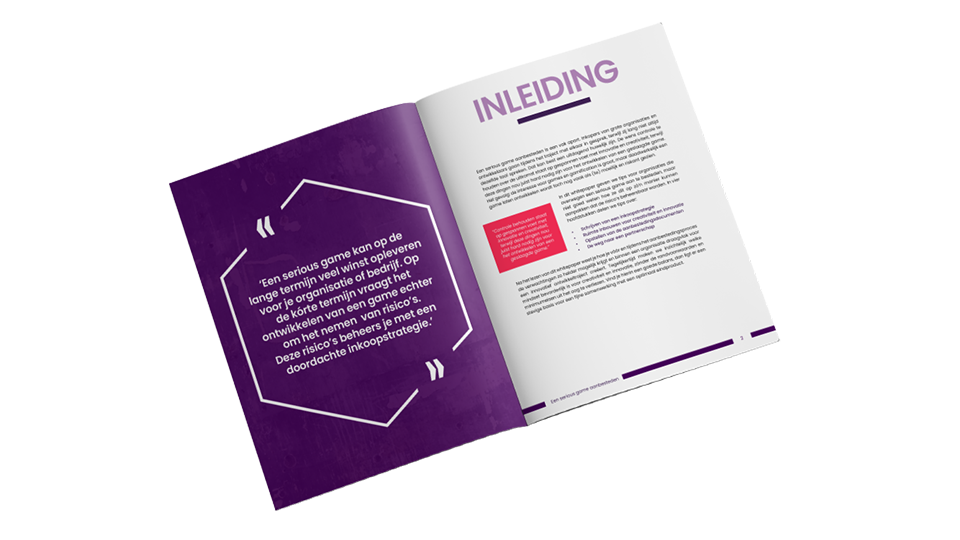International partnerships
Participating in European consortia increases the impact of your work. Discover our role as a design partner in international collaborations.

As an employer or manager, how can you contribute to better integration of people with autism in the labour market? The European project Autism: Spectrum of Employment Skills, ASES, revolves around that question. Within the consortium, we are developing a game that teaches managers how to make their job application process more accessible to candidates with ASD. Players also learn how to organise work and teams in such a way that people with autism can also flourish within the organisation. The serious game is specifically designed for European SMEs.
People with autism can be invaluable in the workplace. Unfortunately, precisely among this target group there is a considerable distance to the labor market. For example, the European Economic and Social Committee (EES) concluded that less than 10% of this target group is currently gainfully employed. One of the reasons is that standard application procedures do not sufficiently take into account the challenges experienced by people with autism. Thus, as a society, you exclude many people who would be very suitable for all kinds of jobs, but simply have more difficulty highlighting their skills in a classic job interview.
There have been previous initiatives designed to increase job opportunities for people with autism. For example, there was an interesting pilot in the United States led by neuroscientist Leanne Chukosie, who aptly articulated the gap between people with autism and the job market: “There’s so much talent that’s sitting at home right now – and that’s a huge loss to the outside world. These are often exactly the workers you want: intelligent, able to focus for long periods of time, innovative problem solvers, loyal and reliable.” (Source) Together with her research team, Chukoskie launched a pilot in which 25 highly educated young people with autism were put to work learning soft skills you need in the job market. Innovative was the use of serious games to practice those skills. For example, the young people had to control a spaceship by looking at it; this was to practice maintaining eye contact – something that is important in the workplace and during job applications, but is often more difficult for people with autism.
What is special about the ASES project is that the consortium focuses specifically on teaching materials for the person on the other side of the (job) interview table: the employer or manager. After all, inclusion goes both ways. Large companies such as Microsoft and Dell already have job application procedures specifically designed to recruit people with autism to the team. With success: recruiters and executives report that they have become better listeners and better managers by immersing themselves specifically in this target group. Such large investments and programs are often not feasible for SMEs. With the development of a freely available serious game, we also hope to give SME executives the tools to make their organization more accessible to people with autism. The game will cover various topics, from the application process to working together in teams.
At 8D Games, game designer Bas Altenburg is involved in the development of the ASES serious game. He thinks this form lends itself well to the intended target groups. Altenburg: ‘As it seems now, we are going to develop a scenario-based mobile game; the player reads about a certain situation and can choose by swiping which response is most appropriate. Immediately after swiping, you get feedback on the choice made. You might read that the candidate walks away immediately after your comment – or conversely that the atmosphere is suddenly much more relaxed. An advantage of a digital game is that the player can practice social situations endlessly without having to stage them. Also, players can learn in a more focused way. Altenburg: “The main goal of the game is to discover the areas in which the player lacks knowledge. Players are presented with bite-sized scenarios and can then focus on the themes they still know too little about. This gives SMEs more insight into how to create a workplace in which people with autism can grow.
The scenarios in the game will be based on common bottlenecks that people with autism experience in the labor market. To ensure sufficient expertise in this area, organizations such as Specialisterne ApS (Denmark) and the Federação Portuguesa de Autismo (Portugal) and the Latvian Autism Association (Lithuania) are involved in the partnership. Initiator Dekaplus (Cyprus), Oceon Group (Greece) and Business Confederation of Macedonia (Macedonia) are involved from the entrepreneurial side. Read more at www.asesproject.eu.


Participating in European consortia increases the impact of your work. Discover our role as a design partner in international collaborations.

Procuring a serious game is an art in itself. Buyers of large organizations and developers interact during the process, even though they do not always speak the same language. Use our whitepaper as a guide so that the procedure runs smoothly and the risks are managed as well as possible.